
Call of Juarez is a 2006 first-person shooter set in a Western milieu for Windows and Xbox 360. Developed by Techland, the Windows version was published in Europe by Focus Home Interactive in September 2006, in Australia by Auran Development in October 2006, and in North America by Ubisoft in June 2007. The Xbox 360 version was ported by Techland and published worldwide by Ubisoft in June 2007. In March 2011, it was made available on Xbox Live, and in November 2018, it was released on GOG.com. It is the first game in the Call of Juarez series, which would go on to include three additional titles; Call of Juarez: Bound in Blood, Call of Juarez: The Cartel, and Call of Juarez: Gunslinger.

Kajko and Kokosz or Kayko and Kokosh is a Polish comic book series by Janusz Christa that debuted in Poland in 1972 and was published primarily until 1992. Mixing history and fantasy tropes it is centered on light-hearted and often comedic adventures of two Slavic warriors named Kajko and Kokosz, loosely resembling both Asterix and Obelix, as well as two personalities from Christa's earlier series on Kajtek i Koko. The series consists of 20 comic albums, as well as a number of shorter stories published in various magazines. In 2006, a short 3D animated movie was made.

Call of Juarez: Bound in Blood is a 2009 first-person shooter set in a Western milieu for PlayStation 3, Windows, and Xbox 360. Developed by Techland and published by Ubisoft, it was released in North America in June 2009 and in Australia and Europe in July. In December 2011, it was made available on the PlayStation Store and the Xbox Games Store, in November 2018, it was added to Microsoft's backward compatibility program, making it playable on the Xbox One and Xbox Series X/S, and in September 2019, it was released on GOG.com. It is the second game in the Call of Juarez series, although narratively, it is a prequel to the first game.

Chrome Engine is a proprietary 3D game engine developed by Techland. The current version, Chrome Engine 6, supports Mac OS X, Linux, Xbox One, PlayStation 4, Xbox 360, PlayStation 3 and Microsoft Windows.
The Shadow of Zorro is a video game based on the character Zorro for PlayStation 2 and Windows. The game was published in North America by Dreamcatcher Entertainment.

Call of Juarez: The Cartel is a 2011 first-person shooter for PlayStation 3, Windows, and Xbox 360. Developed by Techland and originally published by Ubisoft, the PlayStation and Xbox versions were released in June 2011 and the Windows version in September. It is the third game in the Call of Juarez series, although narratively, it is unrelated to the two previous games, and whereas they were set in a western milieu, The Cartel is set in modern-day Los Angeles and Mexico. The series would go on to include one additional game; Call of Juarez: Gunslinger.
Call of Juarez is a first-person shooter video game series created by Paweł Selinger in 2006. Released primarily on Windows, PlayStation 3, and Xbox 360, there are four games in the series; Call of Juarez (2006), Call of Juarez: Bound in Blood (2009), Call of Juarez: The Cartel (2011), and Call of Juarez: Gunslinger (2013). Techland has developed all four games, and as of 2018, owns the publishing rights. From 2006 to 2018, Ubisoft held the publishing rights.
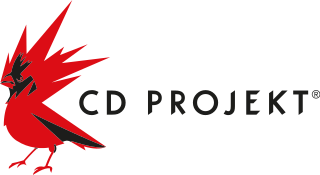
CD Projekt S.A. is a Polish video game developer, publisher, and distributor based in Warsaw, founded in May 1994 by Marcin Iwiński and Michał Kiciński. Iwiński and Kiciński were video game retailers before they founded the company, which initially acted as a distributor of foreign video games for the domestic market. The department responsible for developing original games, CD Projekt Red, best known for The Witcher series and Cyberpunk 2077, was formed in 2002. In 2008, CD Projekt launched the digital distribution service Good Old Games, now known as GOG.com.
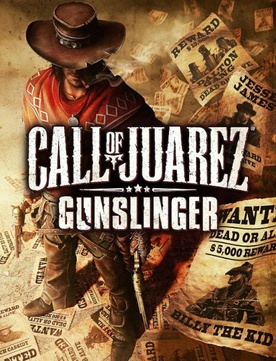
Call of Juarez: Gunslinger is a 2013 first-person shooter for PlayStation 3, Windows, Xbox 360, and Nintendo Switch. Developed by Techland and originally published by Ubisoft, it was released in May 2013 for PlayStation 3, Windows and Xbox 360. The Switch port was released in December 2019. It is the fourth game in the Call of Juarez series, although narratively, it is unrelated to the three previous titles.
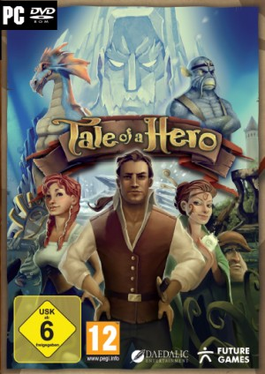
Tale of a Hero is a fantasy puzzle point-and-click adventure game developed by Czech company Future Games. It was released in 2009. The game uses AGDS Engine. The story was influenced by myths about King Arthur and Beowulf. The game has never been released in English-language markets, but the Italian version includes full English voice acting and an English subtitle patch was later released.
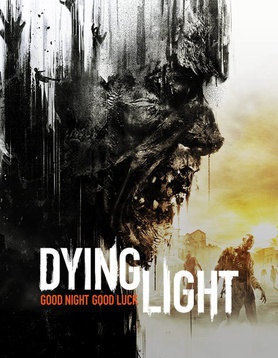
Dying Light is a 2015 survival horror video game developed by Techland and published by Warner Bros. Interactive Entertainment. The game's story follows undercover agent Kyle Crane who is sent to infiltrate a quarantine zone in a fictional Middle Eastern city called Harran. It features an enemy-infested, open world city with a dynamic day–night cycle, in which zombies are slow and clumsy during daytime and extremely aggressive at night. The gameplay is focused on weapons-based combat and parkour, allowing players to choose fight or flight when presented with dangers. The game features an asymmetrical multiplayer mode, and a four-player co-operative multiplayer mode.

Tajemnica Statuetki is a Polish-language adventure game developed and published by Metropolis Software House for DOS-based computers in 1993. While it was never released in English, it is known in the English-speaking world as The Mystery of the Statuette. The game was conceived by a team led by Adrian Chmielarz, who used photographs taken in France as static screens within the game. The first title in the adventure game genre that was produced in Poland, its plot revolves around a fictional Interpol agent named John Pollack trying to solve a mystery associated with the thefts of ancient artifacts around the world.
Gry-Online is a group of Polish websites devoted to computer games and electronic entertainment. Founded by Mariusz Klamra, Wojciech Antonowicz and Rafał Swaczyna, the group has grown to include GRYOnline.pl, TVGry.pl, Gameplay.pl, and Gamepressure. In 2017, the German branch of the French publisher Webedia Group bought Gry-OnLine from Empik, thereby entering the Polish market.

Katharsis is a horizontally scrolling shooter from Polish developer Metropolis Software House and published by CD Projekt in 1997.
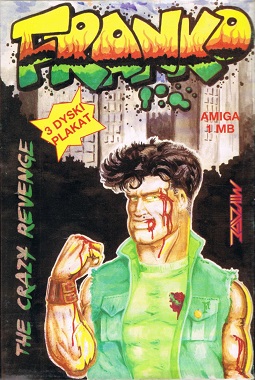
Franko: The Crazy Revenge is a side-scrolling beat 'em up computer game developed by the Polish Szczecin-based studio World Software for the Amiga in 1994, later ported to MS-DOS compatible operating systems in 1996. It follows the titular Franko causing mayhem on the streets of Szczecin to avenge his fallen friend Alex.

The Guardian of Darkness is a French action game developed and published by Cryo Interactive in 1999.

Sołtys is a Polish point and click adventure game by LK Avalon which was released for MS-DOS on May 23, 1995.

Polanie is a historical real-time strategy video game developed by MDF and published by USER for DOS and Microsoft Windows in 1996. An enhanced CD version was released the following year.
Skinny & Franko: Fists of Violence is an action-adventure video game developed by Blue Sunset Games and published by Console Labs S.A. It is a sequel to Franko: The Crazy Revenge.
Poland is a major video game market and home to one of the largest video game industries in the world. In 2022, Poland became the world’s fourth largest exporter of video games and Polish publicly-traded gaming companies were worth over €12 billion. The game studios in the country employ around 10,000 people and release almost 500 new games annually.















